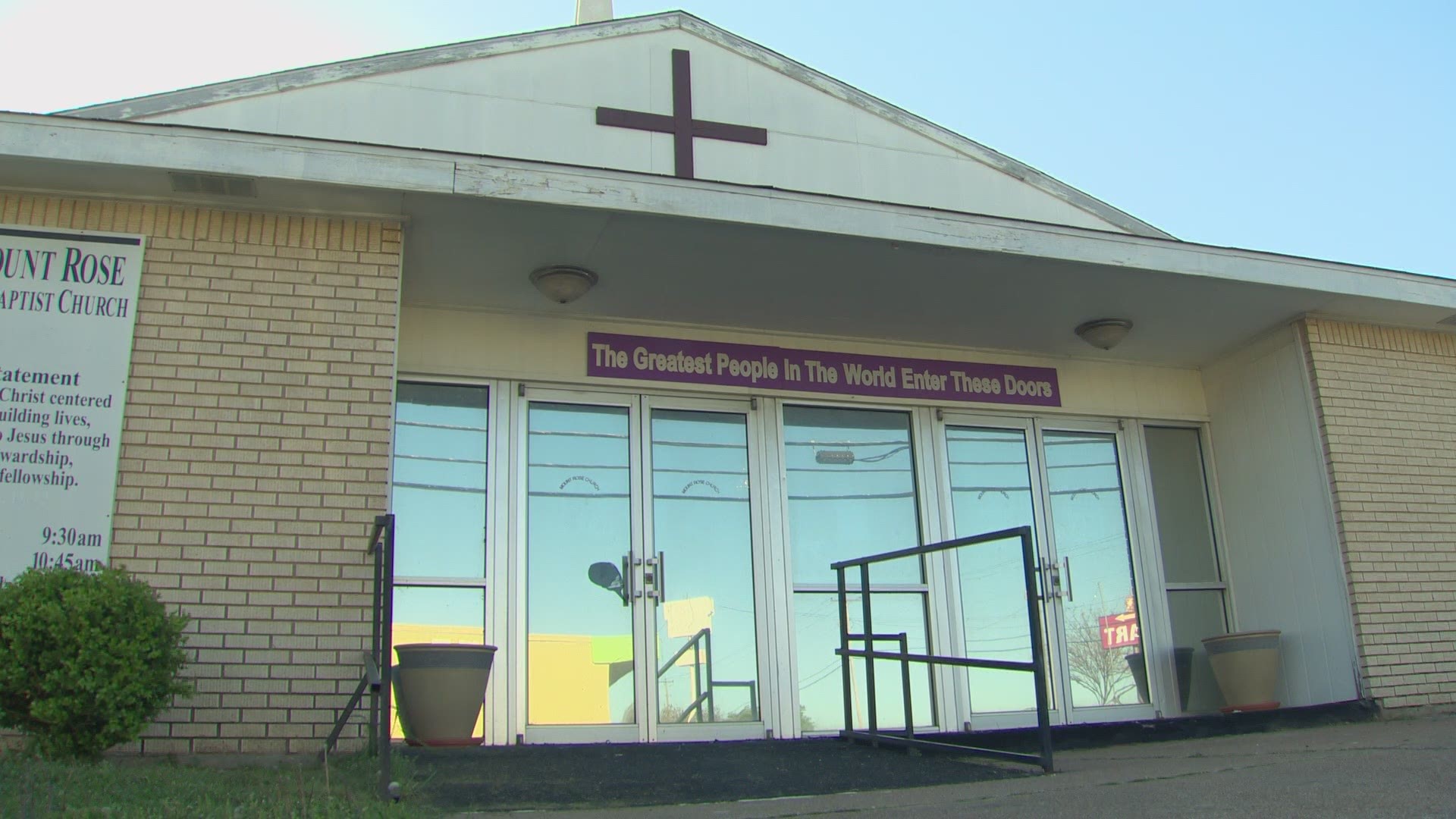TARRANT COUNTY, Texas — With Easter weekend on the horizon, many families are preparing for their second in the pandemic. While hundreds of thousands are vaccinated and will be able to gather to celebrate, many still are not.
Pastor K.P. Tatum leads New Mount Rose Missionary Baptist Church in Fort Worth. He said the church will continue the online services they've been doing for the past 52 weeks.
“A lot of the denominations are very serious about the COVID-19 restrictions and want to protect their members," Rev. Dr. Rhonda Branch Yearby said. "There are several denominations that are still not meeting at churches right now. You have a few denominations who are meeting, but you have to make reservations, so it’s really been hard.”
Yearby is the chief executive officer of Tarrant Churches Together, a Forth Worth-based non-profit that brings together churches and faith-based organizations throughout the county to serve the community.
"We have a few megachurches, but a majority of our churches and memberships are small churches and medium-sized churches," said Yearby.
COVID-19 forced churches to shut their doors for in-building service over the last year. While not ideal for any, larger churches that already streamed their services online were better able to transition into all-virtual services in the pandemic. Yearby said smaller churches needed more help.
“We started doing classes on Facebook and Zoom, teaching Facebook and Zoom to pastors at small churches because that’s who’s been hurting with COVID," said Yearby.
In addition to classes from the organization, Yearby said some megachurches and pastors of megachurches, like Bishop T.D. Jakes, offered their studios to smaller churches for free to help them launch online services.
The result?
"Tithes have gone up online, and then you have people who were not in church who are now going to church maybe two or three times a week on Facebook or teleconference," said Yearby.
Gallup released a study showing church membership, across the board, lower than it's been in nearly a decade. The report showed a continuation of a trend seen over the past two decades. While the pandemic was a factor, the study attributes it to many adults not classifying themselves as religious and not becoming members of specific houses of worship.
Yearby said those numbers don't correlate to the number of people leaning on their faith, especially in the pandemic.
"It doesn't tell the whole story," Yearby said. "Even though membership is down, attendance is up."
Yearby said churches in her organization are able to offer services tailored more specifically to certain topics and age groups, as well as expanding when they can be by offering them online.
“Some people have said they’ve never really attended, or been a member of a church, but they’ve needed church during these times," said Yearby.
It's a shift she believes will last even post-pandemic.
"It will be actually better because we’ll have so many unchurched people, but people of faith," Yearby said. "Unchurched people who now have faith. They may not come in person, but they’re still going to come to church online."
Pastor Tatum said, over the past year, his church has beefed up its outreach ministry. They've been working to meet practical needs of the underserved in their community.
“We literally had more people in the parking lot during the pandemic than we did inside the church over the past thee years," said Tatum.
Tatum said the pandemic underscored what it means to be a church.
"Church has to be done outside these walls," Tatum said. "We are the church. Not a building."

